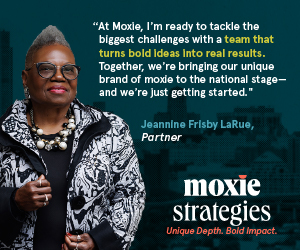DOZENS OF TEMPORARY STAFFING AGENCY WORKERS DEMAND SAFE TRANSPORTATION AND GOVERNOR MURPHY TO PASS AN EXPANSIVE WORKER SAFETY EXECUTIVE ORDER
DOZENS OF TEMPORARY STAFFING AGENCY WORKERS DEMAND SAFE TRANSPORTATION AND GOVERNOR MURPHY TO PASS AN EXPANSIVE WORKER SAFETY EXECUTIVE ORDER
Essential Workers Protested at Two Temp Agencies Where Workers Report That They Are Crammed Into Vans and Not Provided with Paid Sick Days, Exposing Them to COVID19
Workers demanded that Governor Murphy and Legislators protect them from dangerous workplaces and employer retaliation by providing workers with the right to refuse to work and job protection until their employers fulfill preventative health and safety measures.
(ELIZABETH, NJ) On Friday, July 10 at 10:00AM, essential workers hosted protests at two staffing agencies in downtown Elizabeth, New Jersey where they called attention to the hazardous conditions in vans transporting workers from agencies to worksites and to demand that Governor Murphy and the Legislature take immediate action to respond to the urgent need of protecting workers’ health and safety.
“I have worked at temp agencies across Elizabeth and I have experienced how terrible these agencies treat workers. They are not given instructions or equipment on how to protect themselves, and this is making our entire community sick with COVID19. We are sick and tired of these agencies treating us like animals. We are human beings who have families and loved ones. We demand that Governor Murphy pass an executive order that forces these temp agencies to comply with social distancing guidelines and penalizes corporations for not providing soap, masks, gloves, and other essentials to keep workers safe,” said Yamilet Surez, agency worker and member of Make the Road New Jersey.
“My husband was working through a temp agency when he suddenly became severely ill and bed-ridden with COVID19. I didn’t know who to call. Because he couldn’t work, he wasn’t able to earn any money. My family doesn’t qualify for unemployment insurance or stimulus payments, so we have to work to survive. He worked enough hours to qualify for paid sick time, but the agency would not pay him for any day he was out of work. This is not fair and we demand that these agencies implement the paid sick days law and we demand that Governor Murphy allow workers to protect themselves by giving them the right to refuse to work if their employers don’t follow basic health and safety rules,” said Nidia Rodriguez, agency worker and member of Make the Road New Jersey.
As the state continues to reopen and COVID19 cases spike in major cities across the state, there are few to no mechanisms in place for low-wage workers to enforce preventative health and safety measures, thereby furthering the likelihood that COVID outbreaks will continue this summer and beyond.
Temp agency workers are essential workers who have been on the front-lines working in warehouses and factories throughout the entire COVID19 pandemic. In 2018, the New Jersey Bureau of Labor Statistics estimated that there are approximately 127,000 workers employed by staffing agencies. Out of 142 distinct logistics facilities captured in a New Jersey survey by the National Employment Law Project, over half had workers employed through staffing agencies working at their sites. On average, agency workers made up more than half of the total workforce (61.4%) at these sites.
This action comes on the heels of worker-led actions across New Jersey on June 11th and June 18th over the past month calling attention to the lack of mechanisms for workers to enforce health and safety standards and an expose detailing the dangerous conditions facing temp agency workers being transported in crammed vans.
Workers across the state are demanding the right to refuse unsafe work without the fear of retaliation or job loss. Workers must be able to report violations and obtain fast resolution of complaints, and so they are calling on Governor Murphy to implement an Executive Order that gives workers the right to refuse to work in unsafe working conditions and a streamlined process that empowers workers to quickly resolve health and safety hazards during this pandemic, so that they can safely get back to work.









